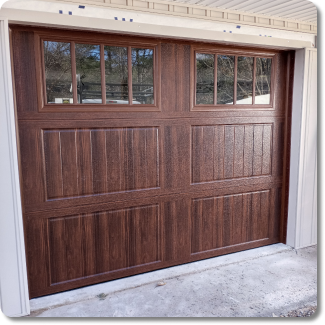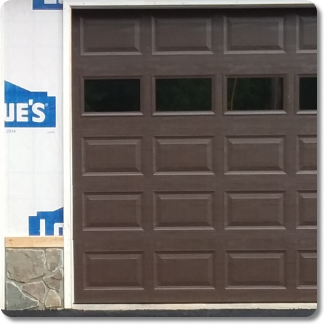Springs balance your garage door and enable it to open and close smoothly. If your garage door struggles to operate, you may need garage door spring repair in Salem, VA. Halls Garage Doors provides garage door spring replacement to minimize your downtime.
Broken Garage Door Spring Repair & Replacement in Salem, VA
Service Or Repair

Professional Garage Door Spring Repair
Garage door springs typically last between 7 to 10 years. Lubricating your springs can extend their lifespan, but eventually, all springs wear out due to years of use. If you attempt to replace springs yourself, you could injure yourself, so it’s better to hire a professional for help.
- Unbalanced door
- Jerky or slow-moving door
- Visible damage
- Failure to open or close
- Banging or squeaking noises
Most garage doors utilize either torsion or extension springs. Torsion springs store energy when you close the garage door and release it when you open the door. Extension springs also store energy, but they stretch when the door closes instead of coiling. Both types of springs ensure that the door operates smoothly and remains balanced.
Check your springs periodically for signs of rust, damage, or breakage. If they are approaching the end of their lifespan, replacing them can prevent costly repairs. A broken spring can cause your garage door to crash down, potentially damaging your vehicle or injuring someone nearby.
A jerky or slow-moving garage door indicates a damaged spring. The door should effortlessly slide up and down in perfect alignment with the doorway. When it struggles to operate, a broken spring likely fails to support its weight. You might also hear grinding, squeaking, or banging sounds.
Functional springs allow you to lift your garage door manually. If the door feels too heavy, it is probably out of balance. Other warning signs include doors that close unexpectedly, gaps in the springs, bent or sagging doors, and total failure to operate.
Avoid using your garage door if you suspect the springs are broken. Trying to open the door manually or using a garage door opener might worsen the damage. Additionally, don’t stand near the door, and keep children and pets away from the garage. If possible, keep the door closed to prevent it from falling unexpectedly.

Salem Garage Door Spring Replacement
Since the 1980s, Halls Garage Doors has provided a range of garage door services for residential and commercial properties. Our company’s broken garage door spring replacement service is the best in Salem. We are a member of the International Door Association (IDA) and partner with major brands, including Cornell, Hörmann, and LiftMaster.
Don’t let a broken garage door spring disrupt your day! Contact Halls Garage Doors now for quick and reliable garage door spring repair in Salem.
©2025 Halls Garage Doors. All Rights Reserved. Privacy Policy. Web Design and Internet Marketing by RYNO Strategic Solutions